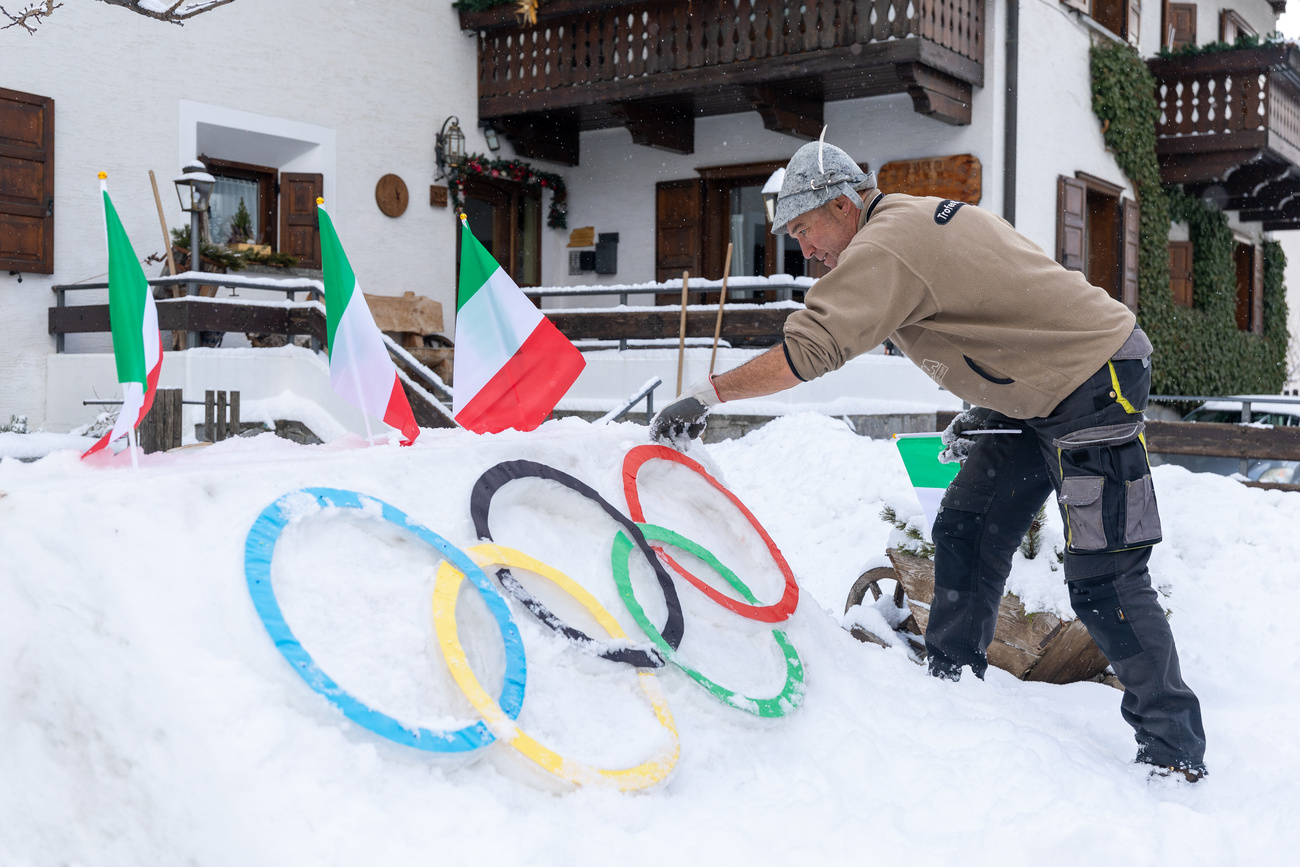
Switzerland prepares for possible winter gas shortages

The government has outlined plans to address a possible shortage of natural gas supplies this winter, saying it could resort to rationing if other measures were insufficient.
Already in March, after the Russian invasion of Ukraine, the Swiss government decided to establish a gas reserve for the winter of 2022/23; on Wednesday, ministers and representatives of the industry gave an update on its implementation.
Five regional gas utilities have so far secured nearly 3.8 terawatt hours of physical gas reserves in neighbouring countries, around 60% of the target, and were working on securing additional options, the government saidExternal link.
Another six terawatts of non-Russian gas – corresponding to 20% of the nation’s winter needs – is to be purchased from France, Germany, Italy or the Netherlands, the government added.
Switzerland, which is completely dependent on imported gas, gets just under half of its supplies either directly or indirectly from Russia, authorities have previously said. Three-quarters of the country’s imports come from neighbouring Germany.
However, the country has relatively low demand for gas, which covers around 15% of total energy consumption. Around 42% of it is used to heat households, and the rest in industry and in the service and transport sectors, according to government data.
Rationing
While industry representatives and ministers on Wednesday said there were no threats to Switzerland’s short-term gas supply, the prospect of reducing consumption – and possible rationing – is also being considered.
If there is a shortage, the government will first urge households and business to cut back on usage, and could oblige also dual-fuel power plants – which can operate using natural gas or extra-light heating oil – to switch to heating oil.
On Wednesday, Economics Minister Guy Parmelin already urged industry to make use of “all possibilities to reduce gas usage”. He also talked about non-essential areas that could be the target of initial restrictions, such as swimming pools, unoccupied buildings, or gymnastics halls.
If these measures were not sufficient, the government could order wider rationing. Priority for getting supplies would fall to households that are connected to a natural gas network and to basic social services outside education and public administration.

More
Swiss government presents plans to boost gas reserves

In compliance with the JTI standards
More: SWI swissinfo.ch certified by the Journalism Trust Initiative































You can find an overview of ongoing debates with our journalists here . Please join us!
If you want to start a conversation about a topic raised in this article or want to report factual errors, email us at english@swissinfo.ch.